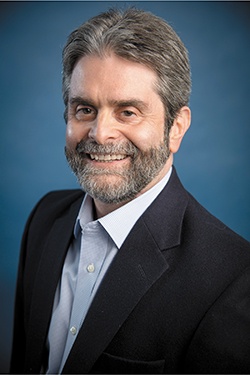The Danger Behind the Im On Cruise Control Attitude (OPINION)
by April 11, 2016 12:00 am 169 views

In previous articles, I addressed middle management, senior management and employees.
Now, I want to speak to CEOs, especially those who have been around a while, whom we might refer to as “seasoned,” and who may be approaching the final stage of their careers.
I’ll begin with a brief story that is all too real, and which has a demoralizing impact upon thousands of Northwest Arkansas employees daily. However, I won’t end on a negative note. There are things you can do to be very different. Here goes.
A good friend of mine is CEO of a family-owned business and has done some remarkable things with it. He sees retirement on the very near horizon and is reluctant to make any changes to the business, even if they make perfect sense. He uses phrases like, “I’m on cruise control,” and, “Our model works great, and I don’t see a need to make any changes.”
Unfortunately his attitude has caused friction between him and his son, who believes the company has a bright future and wants to implement changes he sees as vital. Since his father is the CEO and is fairly closed to significant changes, the son and other employees are frustrated because they feel they are being held back unnecessarily.
This is not the first time I’ve heard this theme. Not long ago I offered to help a bank use business intelligence to help them become more profitable. The C-level manager told me, “I like your proposal and it makes sense. However, many members of our team are retiring in the next five years, and I think it would be hard to get buy-in to your plan.”
Read between the lines, “I’m comfortable. We’re making money. I’ll be retired soon. Let’s not mess anything up or cause unnecessary headaches.”
Of course my response is, “How can you mess anything up by understanding your customers and markets better? Any by the way, what about all the younger people in the company who are eager to excel?”
Attitudes like this may explain why there used to be close to 20,000 banks in America, and now there are about 6,500, with more going out of business every year.
These examples are symptomatic of a bigger picture occurring across the country, but you must fight it. If you are a CEO, business owner, or person high in an organization, you have to keep going and developing. You owe that to the people under you whose livelihoods and careers depend on your level of engagement.
If you go on cruise control as you start to see the runway lights of retirement approaching, it severely discourages people below you in the organization who want to put their talents to full use to do great things for the business.
I remember this phenomena all too well from a previous employer. My peers and I offered up innovative idea after idea, only to be rejected by senior managers who were approaching retirement. Many of us threw up our hands and thought, “What’s the point?”
It doesn’t have to be that way though. I run across plenty of CEOs near retirement age who are still guns blazing. They’re looking realistically and unselfishly at the needs of the organization as they near their departure, and are continuing to innovate and develop the people around them.
Cruise control is dangerous to an organization and, in my opinion, selfish. I understand folks have paid their dues, are perhaps burned out, and are looking for a transition. That’s normal and understandable.
However, when I consider people like Moses, Ronald Reagan, Peter Drucker and the host of retirement age people I know who are still contributing, my encouraging word is, despite your proximity to retirement age, you have not reached your God-given potential, and you still have much more to contribute.
Instead of looking at the runway and putting your feet up, put the hammer down and use your experience to grow, innovate, and develop those around you.
Scott McClymonds is the founder of Fayetteville-based strategic consulting firm CEO Velocity. Scott’s expertise with business intelligence and leadership drive real profitability for clients. Subscribers to this magazine can receive a free one-hour strategic marketing consultation and assessment by contacting him at [email protected], 479-263-0774, LinkedIn or Twitter @ScottMcClymonds.
